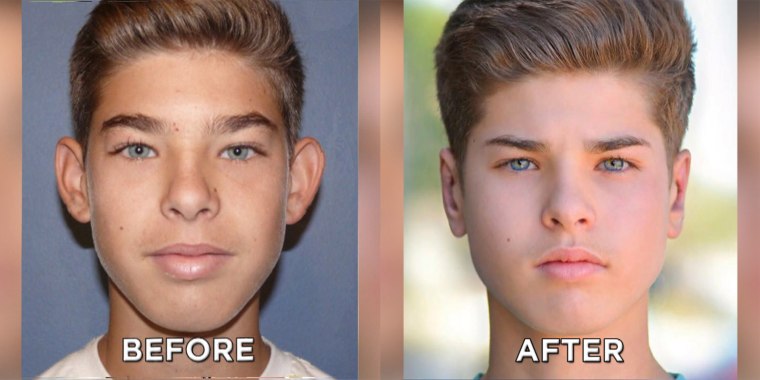Mommy Makeover Rancho Cucamonga: Reclaim Your Pre-Baby Body with Tailored Treatments
Mommy Makeover Rancho Cucamonga: Reclaim Your Pre-Baby Body with Tailored Treatments
Blog Article
Exploring the Emotional and Social Variables That Drive Individuals to Take Into Consideration Aesthetic Surgery as a Means of Renovation
The decision to go after plastic surgery frequently prolongs beyond mere visual appeals, linking with emotional and social dynamics that warrant detailed exam. Factors such as self-worth, pervasive societal beauty requirements, and the prevalent influence of social media sites merge to shape specific motivations for surgical improvement. As these impacts come to be progressively noticeable, comprehending the underlying cultural and psychological contexts is essential. What stays to be discovered is the profound impact these aspects have not just on personal identification however also on more comprehensive societal norms and values surrounding appeal and acceptance.
The Role of Self-Esteem
Self-worth substantially affects a person's choice to pursue plastic surgery. People with low self-esteem frequently view themselves in a negative light, resulting in feelings of inadequacy regarding their physical look. This negative self-perception can drive them to look for medical interventions as an approach of improving their self-image. The need for enhancement in one's look is often connected to an idea that such changes will boost their overall self-regard and self-confidence.

Inevitably, the duty of self-confidence in the decision-making procedure regarding plastic surgery highlights the complicated interplay in between body picture, personal fulfillment, and mental health. Understanding this relationship is vital for medical care specialists to make sure that patients are making informed choices rooted in realistic expectations and psychological wellness.
Social Charm Standards
Influenced by pervasive media portrayals and social narratives, social charm criteria play an important role fit individuals' understandings of their own bodies. These standards are usually characterized by an idealized form of beauty that emphasizes attributes such as slimness, symmetry, and youthfulness. As these ideals are continued via different networks, consisting of advertising, tv, and movie, people often internalize these messages, leading to dissatisfaction with their natural appearance.
The implications of these societal standards expand past aesthetic choices; they can affect self-worth, psychological health and wellness, and social partnerships. People who regard themselves as disappointing these requirements might experience feelings of insufficiency, motivating a desire for plastic surgery as a way of achieving social authorization. This search is usually sustained by the idea that adapting these suitables will enhance not only physical look yet also social standing and individual satisfaction.

Influence of Social Network
The impact of social appeal criteria is further enhanced by the surge of social media systems, where curated images and idealized representations of appeal are ubiquitous. Customers are continuously exposed to filtered and modified photographs, which usually portray unattainable physical attributes. This direct exposure grows a society of comparison, leading people to assess their very own appearance versus these typically unrealistic benchmarks.
Social media influencers and celebrities frequently advertise aesthetic treatments, stabilizing the concept that surgical enhancements are a sensible methods for attaining societal ideals (plastic surgery rancho cucamonga). The visibility of these enhancements can create an understanding that undergoing cosmetic surgical treatment is a typical technique, consequently affecting individuals to think about similar interventions as a pathway to boosted self-confidence and social approval
Additionally, the interactive nature of social media permits immediate feedback with likes and remarks, better strengthening the wish to adapt to prominent appeal standards. Such communications can aggravate feelings of inadequacy and drive people towards plastic surgery as a means of getting validation. Inevitably, social media plays an essential duty in shaping understandings of appeal, which considerably impacts the decision-making processes surrounding cosmetic surgical treatment.

Cultural Point Of Views on Look
Across various dig this societies, understandings of look are deeply rooted in historical, social, and economic contexts, forming people' views on charm and desirability. In numerous societies, appearance offers as a considerable marker of identity, influencing social standing, professional possibilities, and personal connections. For instance, in some societies, light skin is commonly connected with wealth and opportunity, while others might glorify darker complexion as signs of toughness and authenticity.
Furthermore, standard charm requirements are frequently continued through social stories, media depictions, and family members influences, bring about varying ideals across various areas (plastic surgery rancho cucamonga). In Western cultures, the focus on youth and fitness often drives people towards aesthetic enhancement, while in certain Eastern cultures, even more subtle adjustments aligned with standard looks may be favored
Globalization and the expansion of digital media have actually better made complex these dynamics, developing a hybridization of charm ideals that transcends geographical limits. As people significantly browse these social narratives, the pressure to adapt details look criteria can lead to the need for plastic surgery, reflecting a complex interplay of individual desires and cultural worths. Understanding these cultural point of views is essential in resolving the motivations behind plastic surgery considerations.
Mental Impacts of Cosmetic Surgical Treatment
Numerous people looking for plastic surgery record experiencing profound mental influences that can significantly alter their self-perception and psychological wellness - plastic surgery rancho cucamonga. The desire for physical improvement usually stems from underlying problems such as low self-esteem, body dysmorphic condition, or social stress relating to appeal requirements. For some, the instant post-operative phase can lead to a temporary boost in self-esteem and complete satisfaction with their appearance, cultivating a sense of empowerment
Nonetheless, these favorable feelings might not be withstanding. Research indicates that while some individuals experience enhanced self-worth, others might deal with heightened anxiety or depression if their assumptions are not fulfilled. This discrepancy can occur from unrealistic ideals perpetuated by media representation and cultural narratives bordering appeal.
Additionally, the mental ramifications of cosmetic surgical treatment prolong past the individual. Relationships with friends and family might be strained see page as social characteristics change, bring about feelings of isolation or alienation. Ultimately, the mental effects of plastic surgery are diverse and complicated, calling for careful factor to consider by both potential patients and health care service providers to make sure informed decision-making and realistic expectations.
Conclusion
To conclude, the choice to go after plastic surgery is significantly influenced by a combination of self-confidence concerns, societal appeal criteria, and social point of views on look. The pervasive reach of social networks additionally aggravates these stress, promoting unrealistic ideals that individuals typically aim to achieve. Understanding these emotional and social aspects is important for dealing with the inspirations behind plastic surgery, highlighting the demand for a much more nuanced conversation surrounding elegance and self-acceptance in contemporary society.
The decision to seek cosmetic surgical treatment commonly prolongs beyond mere aesthetic appeals, linking with emotional and social characteristics that warrant complete examination. Inevitably, social media plays a critical function in shaping assumptions of appeal, which considerably impacts the decision-making processes bordering cosmetic surgical procedure.
As individuals significantly browse these cultural narratives, the pressure to adapt to certain appearance requirements can lead to the desire for cosmetic surgery, showing a complex interaction of personal desires and cultural worths.In conclusion, the choice to pursue cosmetic surgical procedure is significantly influenced by a mix of self-esteem problems, societal elegance requirements, and cultural point of views on appearance. Comprehending these social and mental aspects is essential for resolving the inspirations behind cosmetic surgical treatment, highlighting the need for an extra nuanced discussion surrounding charm and self-acceptance in their explanation modern society.
Report this page